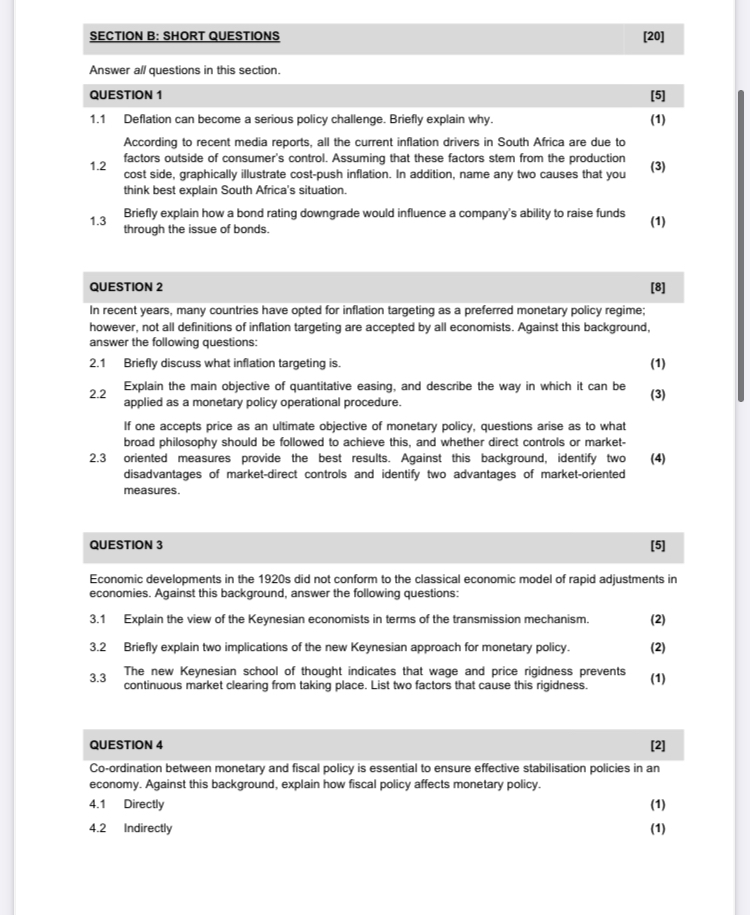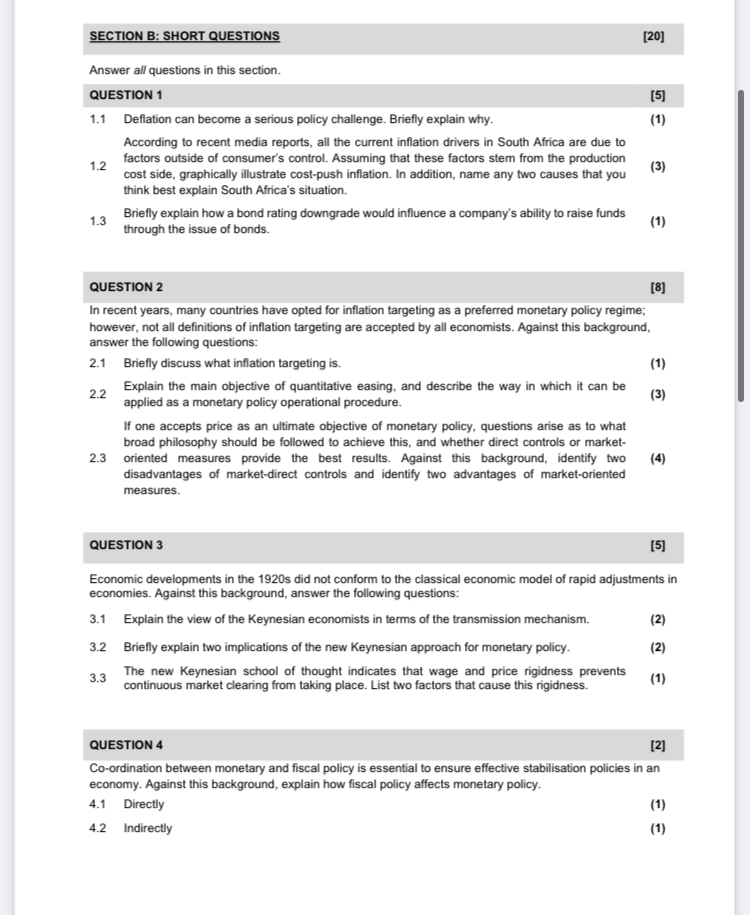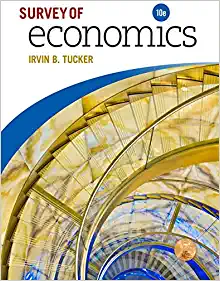
Monetary policy
SECTION B: SHORT QUESTIONS [20] Answer all questions in this section. QUESTION 1 [5] 1.1 Deflation can become a serious policy challenge. Briefly explain why. (1) According to recent media reports, all the current inflation drivers in South Africa are due to 1.2 factors outside of consumer's control. Assuming that these factors stem from the production cost side, graphically illustrate cost-push inflation. In addition, name any two causes that you (3) think best explain South Africa's situation. 1.3 Briefly explain how a bond rating downgrade would influence a company's ability to raise funds through the issue of bonds. (1) QUESTION 2 [8] In recent years, many countries have opted for inflation targeting as a preferred monetary policy regime; however, not all definitions of inflation targeting are accepted by all economists. Against this background, answer the following questions: 2.1 Briefly discuss what inflation targeting is. (1) 2.2 Explain the main objective of quantitative easing, and describe the way in which it can be applied as a monetary policy operational procedure. (3) If one accepts price as an ultimate objective of monetary policy, questions arise as to what broad philosophy should be followed to achieve this, and whether direct controls or market- 2.3 oriented measures provide the best results. Against this background, identify two (4) disadvantages of market-direct controls and identify two advantages of market-oriented measures. QUESTION 3 [5] Economic developments in the 1920s did not conform to the classical economic model of rapid adjustments in economies. Against this background, answer the following questions: 3.1 Explain the view of the Keynesian economists in terms of the transmission mechanism. (2) 3.2 Briefly explain two implications of the new Keynesian approach for monetary policy. (2) 3.3 The new Keynesian school of thought indicates that wage and price rigidness prevents continuous market clearing from taking place. List two factors that cause this rigidness. (1) QUESTION 4 [2] Co-ordination between monetary and fiscal policy is essential to ensure effective stabilisation policies in an economy. Against this background, explain how fiscal policy affects monetary policy. 4.1 Directly (1) 4.2 Indirectly (1)








